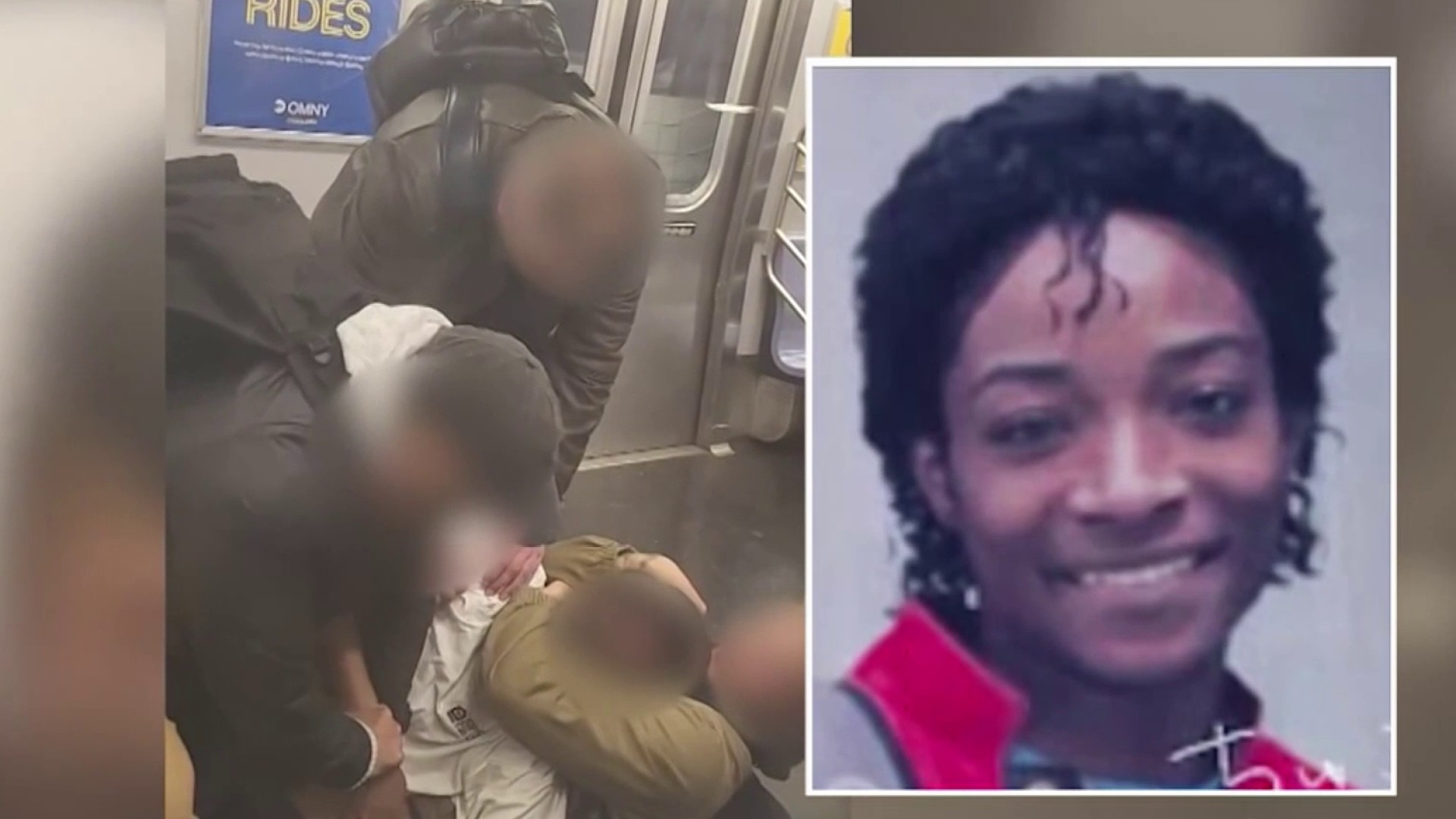
The U.S. Marine veteran who allegedly put Jordan Neely in a fatal chokehold aboard a New York City subway train said through his lawyers Friday that he was only protecting himself after Neely threatened him and other passengers.
Daniel Penny, a 24-year-old college student, intervened by placing Neely, a homeless man who struggled with mental health, in a headlock while holding him on the ground aboard a train at the Broadway-Lafayette station Monday afternoon. Others also helped subdue Neely.
Neely was unconscious on the car floor when officers arrived and pronounced dead at a hospital, police said.
Penny was questioned by the NYPD and later released from custody. The death was ruled a homicide by the medical examiner's office. No charges have been filed in the case at this time.
Get Tri-state area news delivered to your inbox.> Sign up for NBC New York's News Headlines newsletter.
Penny's lawyers, Thomas Kenniff and Steven Raiser, released a statement Friday night offering condolences to those close to Neely and stating that Penny and other passengers acted in a justifiable manner.
"Mr. Neely had a documented history of violent and erratic behavior, the apparent result of ongoing and untreated mental illness," the statement read. "When Mr. Neely began aggressively threatening Daniel Penny and the other passengers, Daniel, with the help of others, acted to protect themselves, until help arrived. Daniel never intended to harm Mr. Neely and could not have foreseen his untimely death."
A Manhattan grand jury will hear the case to determine whether criminal charges will be brought against Penny, two sources familiar with the matter told News 4.
Juan Alberto Vazquez, who was on the train and recorded Neely becoming unconscious as he was restrained, said Neely acted aggressively and threw his jacket, he hadn’t attacked anyone. Vazquez said the chokehold lasted about 15 minutes.
Vazquez said he was scared, and believes others were, as well, with some moving from their seat on the train.
"I stayed sitting in my place because it was a little further away, but obviously in those moments, well, one feels fear," Vazquez said. "One thinks he may be armed."
In the wake of Neely's death, the district attorney's office has faced mounting pressure to file charges in the case, leading to debate over whether Penny acted in justified defense or criminally.
Neely's family has retained legal representation with Mills & Edwards LLP.
"I took this case because 15 minutes is too long to go without help, intervention and without air. Passengers are not supposed to die on the floor of our subways," attorney Lennon Edwards said in a statement. "We understand our current times have created a heightened sense of fear (sometimes reasonable, sometimes not.) However, there has to be a clear line of when lethal force can be used by anyone, including civilians."
Potential criminal charges against Penny could depend on whether a “reasonable” New Yorker would have acted similarly.
Under New York’s penal code, a person who uses deadly force must not only prove that they feared for their own life or someone else’s, but that any reasonable person would have felt the same way.
Law enforcement sources with knowledge of the case said Neely had a lengthy criminal history, with charges including assault and disorderly conduct. Penny's lawyers said in the statement that Neely "had a documented history of violent and erratic behavior, the apparent result of ongoing and untreated mental illness."
"For too long, those suffering from mental illness have been treated with indifference," the statement read. "We hope that out of this awful tragedy will come a new commitment by our elected officials to address the mental health crisis on our streets and subways."



